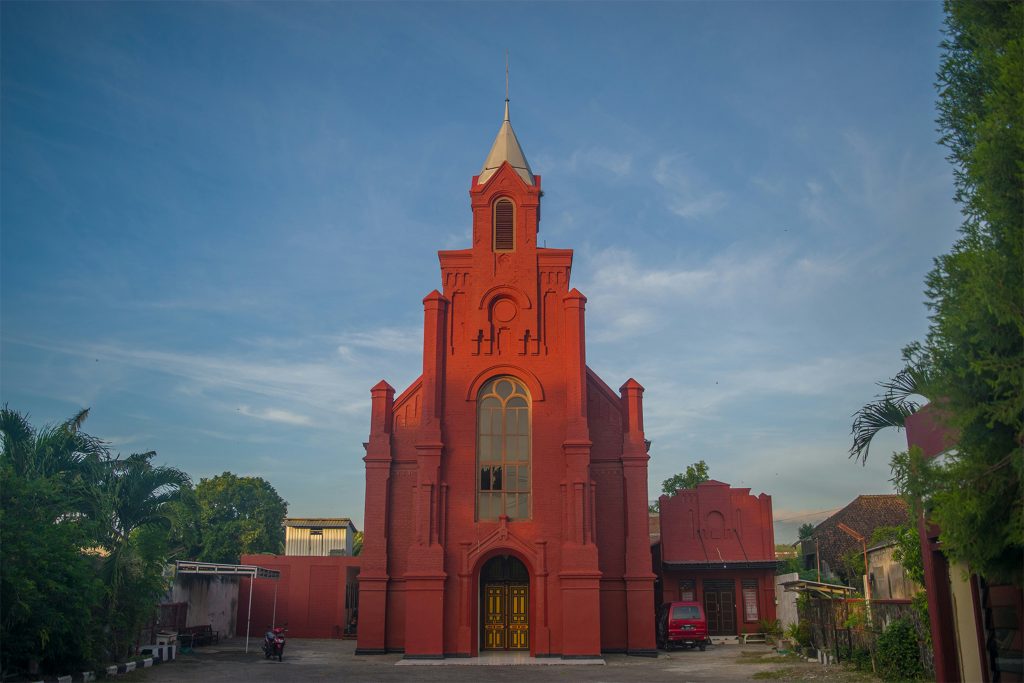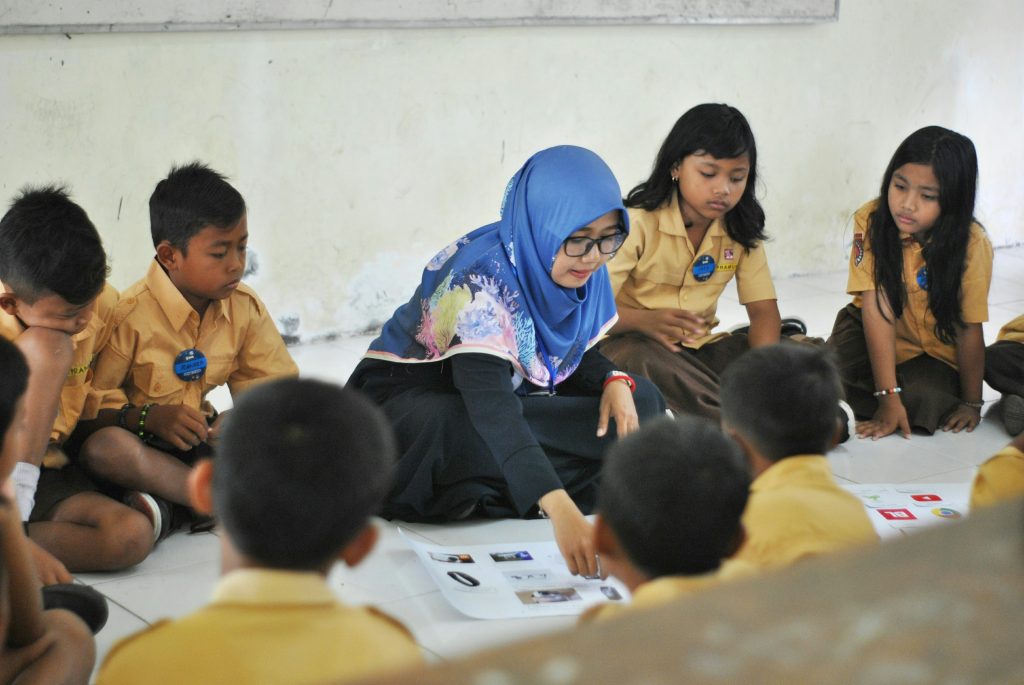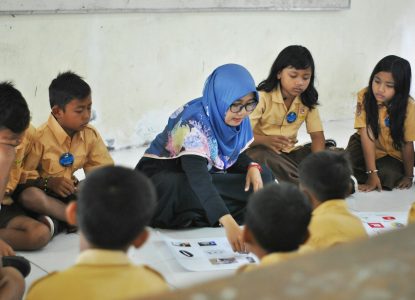This blog post is based on a presentation delivered by Matius Ho, Executive Director of the Leimena Institute, at the 32nd Annual International Law and Religion Symposium held at BYU Law School in Provo, Utah on October 7, 2025.
In an era marked by rising xenophobia and discrimination, Indonesia has pioneered an innovative approach to building social cohesion through education. The Cross-Cultural Religious Literacy program represents a systematic effort to transform interfaith relations from mere tolerance to genuine collaboration, building the social capital necessary for a diverse society to thrive.
The Challenge: From Crisis to Opportunity
As UN High Commissioner for Human Rights Volker Türk noted in March 2024 before the Human Rights Council, xenophobia and discrimination based on religion, gender, ethnicity, and migrant status are rising to acutely disturbing levels. His solution points to a critical need: inclusive faith literacy as the foundation for societies where expressions of hatred become socially unacceptable.
This challenge is particularly acute in Indonesia, a nation of extraordinary diversity. With 283.5 million people spread across 16,056 islands, speaking 652 languages and representing 1,331 ethnicities, Indonesia is the world’s largest Muslim-majority nation and third-largest democracy. The country is neither a religious nor secular state and maintains no official state religion, with Muslims comprising 86.88% of the population, Christians 10.58%, Hindus 1.71%, Buddhists 0.75%, and others representing smaller percentages.
The Theoretical Foundation: Social Capital and Trust
The program’s approach is grounded in social capital theory, particularly the work of Robert Putnam, who emphasized that trust is an essential component of social capital. As Putnam observed, trust lubricates cooperation—the greater the level of trust within a community, the greater the likelihood of cooperation, and cooperation itself breeds trust.
Social capital refers to connections among individuals through social networks and the norms of reciprocity and trustworthiness that arise from them. Crucially, Putnam noted that a society of many virtuous but isolated individuals is not necessarily rich in social capital. What matters is the network—the connections between people.
Within social capital theory, the distinction between bonding and bridging capital proves particularly important. Bonding social capital connects people with common backgrounds, while bridging social capital connects people of different backgrounds. For diverse societies like Indonesia, bridging social capital is vital for smooth functioning and building intergroup acceptance. This concept is rooted in Gordon W. Allport’s Intergroup Contact Theory, which demonstrates that prejudice may be reduced by equal status contact between majority and minority groups in pursuit of common goals, especially when sanctioned by institutional supports and leading to perception of common interests and common humanity.

The Indonesian Approach: Moving Beyond Dialogue
Indonesia’s Cross-Cultural Religious Literacy program represents a deliberate shift in approach to interfaith relations. Rather than stopping at tolerance and dialogue, the program aims for acceptance and collaboration. The objective is not to create religious experts or make people more religiously devout, but rather to develop competency to understand and engage positively and constructively in a multifaith and multicultural society.
The program builds social capital—primarily social trust—by training educators on competencies for multifaith and multicultural collaborations. These competencies are organized into three categories: Personal Competency (understanding one’s own faith and identity), Comparative Competency (understanding other faiths and cultures), and Collaborative Competency (working together across differences). These competencies work together to foster collaboration, which in turn builds trust in a virtuous cycle.
Program Structure: A Multi-Pronged Approach
Launched in late 2021, the CCRL Training Program employs a comprehensive, multi-pronged approach with four key components:
- CCRL Introductory Course: A one-week online training combining Zoom sessions with live interactions with international speakers and a Learning Management System for self-study. The curriculum covers the CCRL concept and introduces major religious traditions—Islam, Christianity, Judaism, Buddhism, Confucianism, and others—with each tradition taught by practitioners of that faith.
- Online Upgrading Course: Continuing education for program alumni.
- Hybrid Upgrading Workshop: Hands-on training where teachers develop their own lesson plans incorporating CCRL principles. These workshops include visits to worship places of other religions, providing direct intergroup contact that reduces prejudice and builds understanding.
- Digital Library: A repository of teaching and learning resources to support ongoing implementation.
Impressive Scale and Impact
From October 2021 to September 2025, the program has achieved remarkable reach. A total of 10,710 educators from all 38 provinces graduated from 71 classes of the CCRL Introductory Course. The participants were 57% female and 43% male, with 34% of participants aged 30 or younger, indicating the program’s success in engaging the next generation of educators.
The program’s impact extends beyond initial training. Teachers who complete the Hybrid Upgrading Workshops are encouraged to voluntarily submit videos of themselves teaching students using the lesson plans they developed. Remarkably, 70-90% of workshop participants do so, demonstrating strong commitment to implementation. These videos show teachers incorporating CCRL principles into classroom instruction, leading field trips to religious sites, and facilitating interfaith dialogue among students.

Strategic Partnerships: Top-Down Meets Bottom-Up
A key to the program’s success has been its partnership structure, combining top-down government support with bottom-up civil society engagement. This approach creates the institutional support that Allport identified as crucial for successful intergroup contact.
The program has established partnerships with more than 40 education and religious institutions while securing support from multiple government ministries:
- Ministry of Primary & Secondary Education: A central partner in reaching educators nationwide
- Ministry of Religious Affairs: Providing religious authority and legitimacy
- Ministry of Foreign Affairs: Connecting the initiative to international interfaith efforts
- Ministry of Law: Integrating CCRL into civil service training
The partnership with the Ministry of Law demonstrates the program’s expanding reach. CCRL training has been introduced for State Civil Apparatus, including heads of training centers, trainers, assessors, legal drafters, legal analysts, and legal educators. Two classes were conducted in 2025 (June 16-19 and September 22-25), with plans to integrate CCRL into education at the Civil Service College, training for active civil servants, and personnel competency assessment.
Regional and International Expansion
The success of Indonesia’s approach has attracted regional attention. The ASEAN 2045 Strategic Plans now include “conducting a series of cross-cultural religious literacy programmes” as a key strategy to accomplish “an inclusive and cohesive [ASEAN] Community.”
To share lessons learned and promote broader adoption, Indonesia hosted an International Conference on Cross-Cultural Religious Literacy in Jakarta on November 11-12, 2025. The conference was hosted by the Ministry of Primary & Secondary Education and Leimena Institute, with support from the Ministry of Religious Affairs, Ministry of Foreign Affairs, Ministry of Law, the International Center for Law and Religion Studies at Brigham Young University, and Templeton Religion Trust.
Key Lessons: Building Social Capital Through Collaboration
Indonesia’s Cross-Cultural Religious Literacy program offers several important lessons for building social cohesion in diverse societies:
First, moving from tolerance to acceptance and from dialogue to collaboration requires systematic education and training, not just goodwill. Second, building social capital requires both personal understanding and institutional support—individual competencies must be backed by government partnership and civil society networks. Third, bridging social capital—connections across differences—is essential for diverse societies, and this requires intentional programming that creates equal-status contact in pursuit of common goals.
Fourth, educators are powerful multipliers of social capital, as they shape the attitudes and competencies of the next generation. Finally, success requires patience and sustained commitment—the program has operated for four years, continuously expanding and deepening its impact.
As xenophobia and discrimination rise globally, Indonesia’s approach demonstrates that building inclusive faith literacy is not just aspirational but achievable through thoughtful program design, strategic partnerships, and sustained commitment. By training educators to understand and engage constructively across religious and cultural differences, the program is building the social capital that will sustain Indonesia’s diversity for generations to come.
– – –
Matius Ho is executive director and a founder of Leimena Institute, a non-profit organization focused on helping Christians effectively engage in social, political, and economic issues in Jakarta, Indonesia. He leads the development of the Cross-Cultural Religious Literacy program which, since 2021, has trained thousands of teachers in Indonesia on competencies to strengthen a peaceful multireligious and multicultural society. Under his leadership, Leimena Institute has built partnerships and collaborations with the Ministries of Foreign Affairs and of Law and Human Rights of the Republic of Indonesia, as well as many leading religious and educational institutions.


